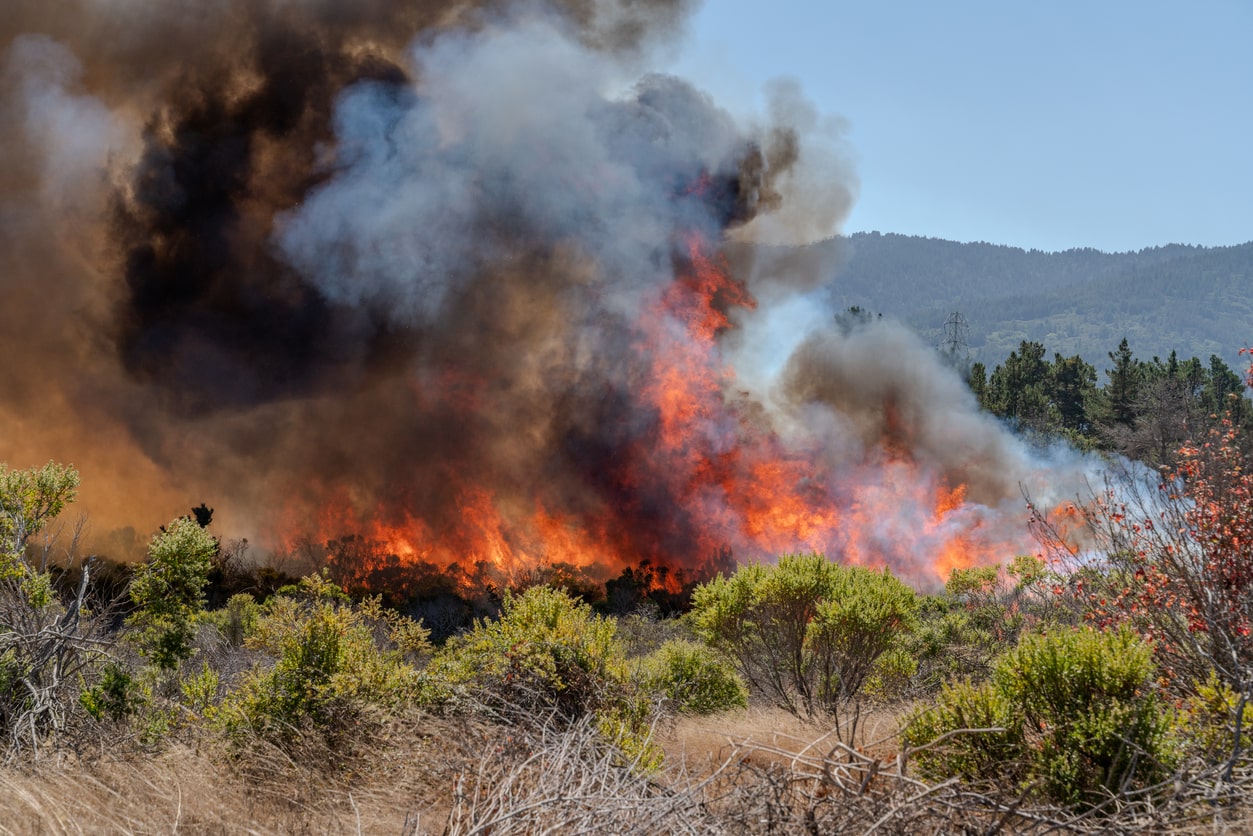
A research article which was recently published in PLOS Climate describes “climate trauma” seen in victims of 2018’s Camp Fire, resulting in effects on frontal brain function and interference processing.
The researchers found that people exposed to the Camp Fire had significant cognitive deficits. The researchers also found that victims of the Camp Fire displayed symptoms of depression, anxiety and post-traumatic stress disorder (PTSD).
The researchers state that their findings provide evidence that climate trauma caused by exposure to wildfires can lead to chronic effects. The researchers state that climate change is accelerating disasters caused by extreme weather, and that the mental health of those impacted by this is “a rising concern.”
The researchers found that the mental impact of climate trauma can be reduced through intervention approaches like digital meditation, which can involve the use of digital meditation apps or programs.
Camp Fire Victims Experienced Interference Processing Deficits
The researchers had participants complete a game-like task called “Middle Fish” which involved participants attempting to identify the direction that a middle fish was moving in while being flanked by two other fish who faced in the opposite or same direction as the middle fish. This test assessed the participants’ interference processing by assessing their ability to process a target stimulus (the middle fish) while other stimuli (the flanking fish) interfered with their processing of the target stimulus.
The researchers found that those directly exposed to the Camp Fire scored 0.64 on the test and that those indirectly exposed to the Camp Fire scored 0.65 on the test. Those who were not exposed to the Camp Fire scored significantly higher (0.83) on the test.
The researchers noted that these results correlated with results published in previous studies in September 2014 and October 2014 describing interference processing deficits in those suffering from PTSD.
The participants completed the Middle Fish task six months to one year after the Camp Fire, suggesting that the interference processing deficits were the result of chronic effects.
The researchers suggested that the interference processing deficit might contribute to reduced wellbeing, and social and functional impairments during daily life, in context relating to the symptoms of PTSD.
Camp Fire Victims Experienced Changes In Frontal Brain Function
The researchers performed synchronized EEG recordings to measure the brain function of participants while they completed the Middle Fish task.
The researchers found that those who were directly exposed to the Camp Fire displayed significantly more left frontal brain activity while completing the task than those indirectly exposed to the Camp Fire or not exposed at all to the fire.
Neural activity in the front of the brain is a sign of cognitive effort, according to a 2014 study. Left frontal dysfunction has been observed in those suffering from PTSD, according to studies published in 2016 and 2018. Left frontal dysfunction has been observed in those suffering from depression, according to studies published in 2007 and 2019.
The researchers suggest that these results may suggest that those who have experienced climate trauma possess a compensatory mechanism consisting of a need for increased cognitive effort while completing the Middle Fish task.
The researchers state that the EEG recordings suggest that the brains of those who experience climate trauma resemble the brains of those suffering from PTSD.
Future Wildfire Victims May Be Compensated For Effects Of Climate Trauma
The Camp Fire burned 153,336 acres of land in Butte County, California from November 8, 2018 to November 25, 2018, almost completely destroying the town of Paradise, killing 85 people and destroying 18,804 buildings. It was the most destructive and deadly wildfire in the history of the state, and its cost has been estimated at $16.65 billion.
A CAL FIRE investigation determined that the fire was started by PG&E power lines.
Lawsuits alleged that PG&E’s negligence caused the Camp Fire, arguing that the Camp Fire occurred because PG&E failed to properly maintain its power equipment and the vegetation around it.
Negligence is failing to act with reasonable care for the purpose of preventing harm. Acting and failing to act can both be negligent. Doing what a reasonably careful entity wouldn’t do is negligent, as is not doing what a reasonably careful entity would do. In the case of the Camp Fire, lawsuits argued that PG&E negligently failed to act in order to make sure its power equipment and the vegetation around it were properly maintained.
California Civil Code 1714 holds those who injure others via negligence liable for any damages related to the injuries. This includes both physical and mental injuries.
PTSD is a commonly cited injury in personal injury lawsuits seeking to recover financial compensation for injuries. Since the “climate trauma” mentioned by the researchers shares many things in common with PTSD, it is possible that future lawsuits, such as lawsuits involving wildfires started by utility companies, will seek financial compensation for climate trauma.

